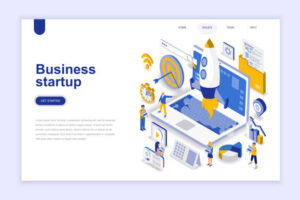How to get that first job after graduating from college.
There will be no further classes. You have completed all of your requirements, including taking and passing your tests, as well as attending your graduation ceremony. What should I do now? Finding an application for all of that information is the next step. What’s the issue? When you are fresh out of college and looking for your first job, it may be challenging to know where to start looking.
Because of this, we have compiled a guide on the appropriate and inappropriate ways to go about applying, interviewing for, and generally making the most of your first job after graduating from college.
Application stage DO: Give yourself some time to relax and replenish your batteries.
After you have your diploma, getting a job straight away is not a requirement in any way, shape, or form. After all of those years of hard work, you deserve a vacation.
Your first job after college is an opportunity to reset and start again, and the best way to approach the process is with a clear mind. If you want to be successful in your first job after college, here are some tips.
According to a recent EU report, the employment rate among university-level graduates aged 20-34 in the past three years was 83.2%.
However, this varies from country to country, with the employment rate for graduates in Germany being an astounding 92.7%, while the employment rate for graduates in Italy being only 58.7%. The numbers are on your side. In other words, you should be able to take some time for yourself to refresh and formulate a strategy.
DON’T: Put things off for so long that you end up missing the opportunity.
According to the findings of a study that was presented in the American Economic Review and which involved the submission of more than 8,000 resumes for consideration for 3,500 open positions, the fact that a person has been jobless for three months does not raise any red flags among potential employers.
However, after six months, there is a possibility that you may not be asked for an interview. And after a year, it’s possible that your employment opportunities may have significantly decreased. The good news is that after you get your first job out of college, any time spent jobless before that won’t be considered when you hunt for your next job. This is the finding of the study, and it’s excellent news for recent graduates.
DO: Compose a solid resume to submit.
On average, hardly ten percent of job applications are ever ever considered for an interview. To put it another way, your resume is the equivalent of a calling card. It does not matter if you have participated in ten internships throughout your time at university;
what matters is that you have a well-written resume, which will get you more interviews than a resume that was thrown together at the last minute. Some helpful hints:
For the most possible effect, keep it to just one page.
Use the reverse chronological sequence (i.e., put 2021 before 2020) in the parts of your resume that detail your education and career experience so that your most recent accomplishments are closer to the top.
Do not include any goal statements on your resume, such as “Recent graduate looking to transfer into the field of digital communications.” This only takes up precious space.
Put an end to using buzzwords and other meaningless corporate jargon. Don’t simply state that you are a problem-solver; demonstrate that you are via your experience by writing in language that is easy to understand and straightforward.
Choose a straightforward structure by include headers, dates in bold, a plain font (such as Helvetica), and sufficient white space between each part to allow the material to circulate freely.
Include your email address and phone number at the top of your resume, making it simple for prospective employers to get in touch with you.
Include your experience in freelancing, blogging, and other aspects of the “gig economy,” since these qualify as work experience.
If you do not have any job experience, you should concentrate on the talents that are transferrable from your undergraduate education as well as any relevant academic projects.
If your academic accomplishments aren’t very noteworthy, you may leave them off. A hiring manager is not likely to be swayed by the phrase “school prefect.”
Keep in mind that in order to increase your chances of being employed, you should send out between 30 and 50 resumes. The secret to success is perseverance!
DON’T: Do not submit an application without first customizing it.
If you send your cover letter and resume to the incorrect individual, it won’t matter how impressive your qualifications are or how compelling your letter of inspiration is. The key to successfully landing your first job after graduation is to create a favorable impression on a complete stranger.
“StandOut CV” claims that recruiters spend an average of six to eight seconds quickly scanning over a candidate’s resume. Your application materials might be thrown out if they are too general and don’t demonstrate that you are acquainted with the firm as well as the function that you are looking for.
DO: Ensure that you have a profile on LinkedIn.
Although it would seem like LinkedIn is the uncool elder brother of social media accounts, using it to get a job interview might really work wonders for a person’s chances of being hired. A recent survey indicated that 122 million individuals had gotten an interview on LinkedIn, and 35.5 million people have been employed after interacting with others on the site That amounts to three new hires being made via the platform every single minute.
DO NOT: Forget to make your other social media accounts private by selecting the “private” setting.
Some prospective employers may look at the applicant’s other social media profiles, such as Facebook, Instagram, Twitter, and TikTok, in an effort to gain a clearer picture of the person they are considering employing. Set all of them to private unless you have a spotless reputation among the general public.
Do your best to exude self-assurance at the interview stage.
There are many different ways to gain confidence, such as wearing appropriately for the role, having a well-groomed look, being on time, being knowledgeable about the organization you have applied for, and providing replies that are meaningful. Here are some pointers to consider:
Make your attire selection the night before the interview, and make an effort to have it reflect the spirit of the organization.
Examine the webpage of the organization and jot down some thoughts.
Discuss possible interview questions and your responses to such questions with a buddy.
Make sure you get up on time and get there early so you can have some time to unwind before the event.
DON’T: Be arrogant
There is a very thin line that separates confident behavior from arrogant behavior. Never brag or embellish the truth, and steer clear of dwelling too much on your own achievements. Don’t speak ill of other people.
When writing sentences, make an effort to utilize “we” rather than “I.” It is not necessary to immediately assert yourself as a leader and attempt to take command during group interviews; rather, leadership emerges from an awareness of the circumstances.
DO: Ask questions
Consider an interview more along the lines of a discussion than of a question and answer session. You are not only there to provide responses; you are also free to ask your own inquiries. Make a list in advance, so that you can show that you are well prepared, and bring it with you. The following are some examples:
What kind of training will I get, and what kinds of possibilities are there for me to further my professional career?
What does a normal day at the office look like?
Why do you appreciate working here?
What are the priorities of the firm right now?
DON’T: Be as wordy as possible.
Remember to keep your responses brief and to the point. Your responses should be within the range of thirty seconds to two minutes for basic questions such as “Why do you want this job?” and approximately three to three and a half minutes for more in-depth questions such as “Tell us about a challenging project you worked on.”
This information comes from Interview Genie. After that point, you’ve gone on for too long, and the interviewer may lose interest and start tuning you out.
Job stage DO: Have faith in the value that you bring to the table.
If a corporation is interested in employing you, it is a clear indication that you should have faith in yourself. Even if the imposter syndrome is so widespread that it has its own page on Wikipedia, this does not imply that you have to experience the feeling that you are a phony.
Make it a habit to reassure yourself that you are adequate on a regular basis, have the guts to reveal your genuine self at work, and refuse to back down from difficult predicaments. If you get off to a good start, you will be more likely to go on the appropriate path.
DO NOT: Set your sights too high, too quickly.
Take a look at the benchmark that the sector sets and talk to some of your friends who are now employed to find out how much money they make. You will get a fair notion from this of how much you can ask for without being completely out of touch with reality if you ask for this amount.
BE SURE TO: Have the courage to go.
The question that everyone wants the answer to: how long should you remain in your first job after graduating from college? According to the information provided on the website TopResume, the typical amount of time an individual will spend working in a given position is 4.6 years.
If you want to improve your chances of getting a better job in the future, you should do all in your power to stay the same position for at least two years.
If, on the other hand, the thought of getting out of bed in the morning makes you feel anxious, you shouldn’t procrastinate before starting your hunt for a job that better suits your needs. You should give the position your best effort in the meanwhile, but if a better chance presents itself, you should make the transition as soon as possible and not look back.
DO NOT Rotate tasks as if you were putting on different outfits.
It’s OK to look for another work if the one you have now doesn’t satisfy your needs. It is not appropriate to go quickly from one firm to the next as if you were participating in a relay race. When you are fresh out of college and searching for your first career, you should make it your priority to locate one that will allow you to concentrate on improving your skills in a real-world environment.
Your career history and resume can take a hit if you wind up changing jobs every two or three months like that. It looks bad on prospective employers.
According to Monster.com, if you’ve had six jobs in the last ten years and haven’t been with any of them for more than a year, a hiring manager will be less likely to ask you to an interview. This is because a recruiting manager wants employees who will stay with the company for at least a year.
How Is A Building Project Financed?
What Exactly Does The Phrase “Competitive Environment” Mean?
Why You Keep Thinking About Him For These Reasons



